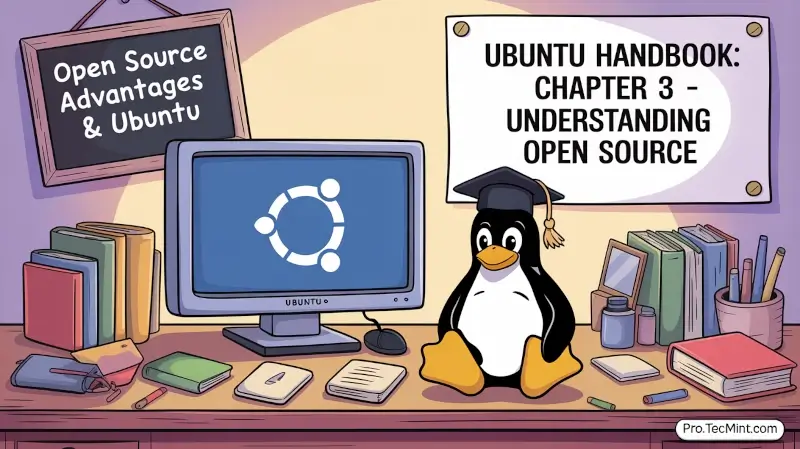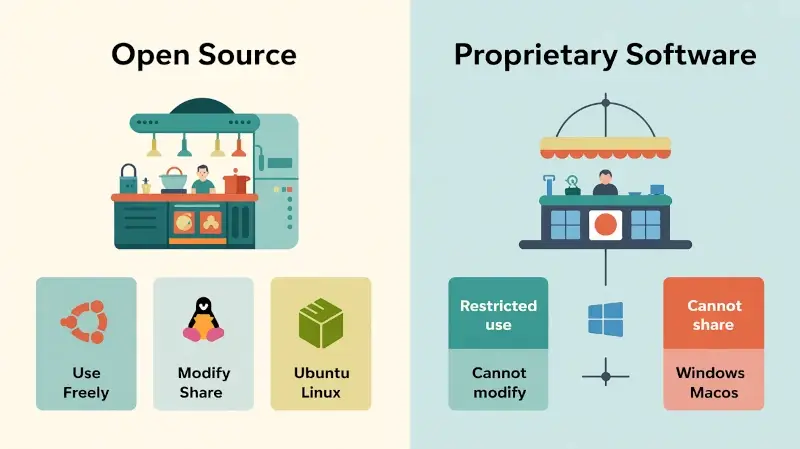Chapter #3: The Advantages of Open Source: Why Ubuntu Stands Out
In this chapter, we explore the advantages of open source, explain what it really means, and show why Ubuntu is one of the best open-source Linux distributions.

When we talk about Ubuntu or Linux in general, we’re not just talking about a free operating system, but we’re talking about a philosophy - a way of thinking about software, computers, and technology that is radically different from the closed, commercial systems many of us grew up with.
Open source is everywhere now, but it wasn’t always like this. Not long ago, it was a niche interest. Only a small group of passionate developers cared deeply about freedom, collaboration, and openness.
Today, open source drives innovation across the globe, and even people who aren’t tech-savvy have likely heard the term.
Ubuntu played a major role in spreading awareness, but open source itself has grown into a powerful, unstoppable force.
This chapter dives into the advantages of open source, what it really means, and why Ubuntu stands out as one of the best open-source Linux distributions.
Whether you’re a complete beginner or someone who’s been tinkering with computers for years, understanding open source gives you not only technical knowledge but also a perspective on freedom, control, and collaboration in the digital world.
What Does “Open Source” Mean?
At its core, “open source” means exactly what it says: the source code of the software is open, which means anyone can view it, modify it, and share it.
Unlike proprietary software (think Windows, macOS, or most commercial apps), open-source software isn’t locked behind a license that restricts what you can do.
Let’s break it down in simple terms:
- Use it freely - You can install Ubuntu on as many computers as you like without paying a dime.
- Modify it - If you want to tweak how something works, change the appearance, or even improve performance, you can.
- Share it - Pass it on to your friends, colleagues, or even release your own version.
Think of open source as a community kitchen where everyone can cook, adjust recipes, and share the results.
Proprietary software, on the other hand, is like a restaurant where you can eat the food but never see the ingredients, let alone change the recipe.
